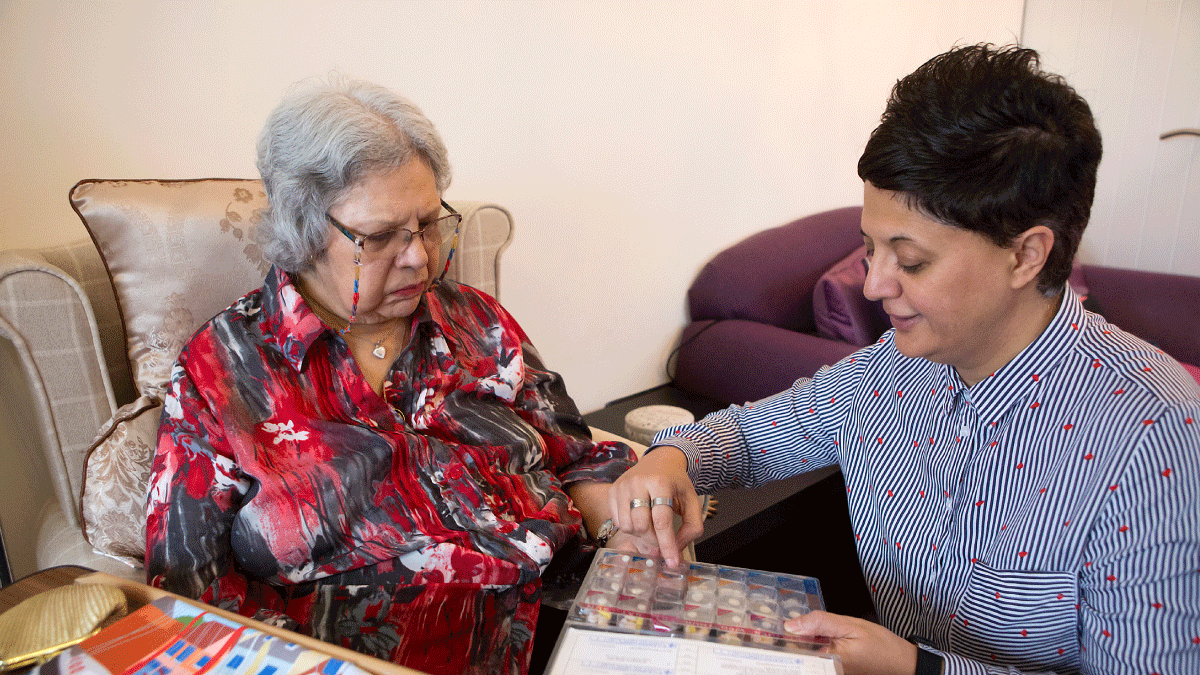Are you searching for a reliable domiciliary care provider in Liverpool? Look no further than O’Shea Healthcare, a trusted name in homecare. This article delves into the essentials of domiciliary care, the challenges involved, and how providers like O’Shea Healthcare make a difference in clients’ lives.
Who is a Domiciliary Care Provider?
A domiciliary care service offers personalised support tailored to an individual’s specific needs. Services can encompass a wide range of assistance, including:
- Personal Care: Assistance with daily activities such as bathing, dressing, grooming, and toileting.
- Household Tasks: Help with cooking, cleaning, laundry, and other domestic chores.
- Medication Management: Ensuring timely administration of medications as prescribed.
- Companionship: Providing social interaction to combat loneliness and promote mental well-being.
- Specialised Care: Support for individuals with specific health conditions, such as dementia or mobility issues.
These services are designed to be flexible, ranging from a few hours a week to comprehensive 24-hour care, depending on the individual’s requirements.
Who Is a Domiciliary Care Worker?
A domiciliary care worker is a trained professional who delivers care services to clients in their homes. Their responsibilities include:
- Providing Personal Care: Assisting clients with activities of daily living.
- Supporting Independence: Encouraging and enabling clients to perform tasks independently where possible.
- Monitoring Health: Observing and reporting any changes in a client’s health or well-being.
- Emotional Support: Offering companionship and emotional assistance.
The role of a domiciliary care worker is both challenging and rewarding. Workers often face obstacles such as managing complex care needs, navigating emotional situations, and working irregular hours. Despite these challenges, the opportunity to make a meaningful difference in clients’ lives provides immense job satisfaction.
Challenges in Domiciliary Care
While domiciliary care plays a critical role in supporting vulnerable individuals, it is not without its challenges. Common issues include:
- Workforce Shortages: Recruiting and retaining qualified care workers can be difficult.
- Irregular Hours: Care workers often need to work evenings, weekends, and holidays.
- Emotional Strain: Supporting clients with complex needs can be emotionally taxing.
- Travel Requirements: Care workers frequently travel between clients, which can be time-consuming and costly.
- Limited Resources: Budget constraints can affect the quality and availability of care services.
Despite these difficulties, providers like O’Shea Healthcare rise to the challenge, ensuring clients receive the highest standard of care.
Assessment and Referral Process
Accessing domiciliary care services typically begins with a care needs assessment conducted by the local authority. This assessment evaluates the individual’s requirements and determines eligibility for support. The process involves:
- Initial Contact: The individual or their representative contacts the local authority to request an assessment.
- Care Needs Assessment: A social worker or assessor evaluates the individual’s physical, emotional, and social needs.
- Financial Assessment: Also known as a means test, this determines the individual’s ability to contribute to the cost of care services.
- Care Plan Development: If eligible, a tailored care plan is created, outlining the services required.
- Referral to Service Providers: The individual is referred to appropriate domiciliary care providers, such as O’Shea Healthcare Services in Liverpool.
Funding for Domiciliary Care

Funding for domiciliary care can come from various sources:
- Local Authority Funding: Based on the financial assessment, individuals may receive full or partial funding from their local council.
- Self-Funding: Individuals who do not qualify for local authority assistance may need to pay for care services privately.
- NHS Continuing Healthcare: For those with significant health needs, the NHS may cover the cost of care.
- Insurance and Benefits: Certain insurance policies and state benefits can contribute towards care expenses.
- Mixed Funding: Many individuals use a combination of private funding and local authority contributions to cover the cost of care. This approach can provide more flexibility in the type and level of services received.
It’s essential to explore all available options and seek advice to ensure the most suitable funding arrangement. Resources such as Age UK and NHS Continuing Healthcare offer valuable information. Additionally, Liverpool City Council provides guidance on accessing local care services.
O’Shea Healthcare Services: Exemplifying Quality Home Care in Liverpool
O’Shea Healthcare is a homecare provider, based in Liverpool. We are a CQC-approved provider dedicated to delivering exceptional domiciliary care. Our services include hourly care, daily care, live-in care, and specialised support, all tailored to meet individual needs. By focusing on person-centred care, O’Shea Healthcare ensures clients receive compassionate and professional support, enabling them to live independently and comfortably in their own homes.
O’Shea Healthcare also collaborates with other local providers to ensure a holistic approach to care, demonstrating their commitment to the community and the people they serve. As a trusted homecare provider in Liverpool, their focus remains on quality, reliability, and client satisfaction.
For more insights into the services provided by O’Shea Healthcare, visit their official website.
Conclusion
Domiciliary care plays a vital role in supporting individuals to lead fulfilling lives within their communities. Despite the challenges faced by care workers, the personal rewards and positive impact on clients’ lives make this profession invaluable.
If you’re seeking domiciliary care services in Liverpool, Merseyside area, and its environ, O’Shea Healthcare Services stands out as a trusted provider, committed to delivering high-quality, personalised care. Their dedication to excellence ensures that clients receive the support they need to live with dignity and independence. Whether through local authority funding, self-funding, or mixed funding arrangements, O’Shea Healthcare offers solutions to meet diverse care needs.
#HomeCare #DomiciliaryCare #OSheaHealthcare #LiverpoolCareServices #ElderlySupport #CareWorkers #IndependentLiving #UKCareServices #QualityHomeCare #CareFunding #DomiciliaryCareProviderLiverpool



